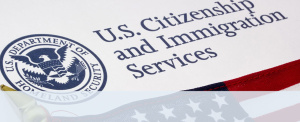
Fees for immigration transactions will increase by an average of 21 percent beginning on December 23, 2016. Applications or petitions mailed, postmarked, or otherwise filed on or after December 23, 2016 must include the new fees.
While the fees for some petitions will remain the same, others will see significant increases. According to USCIS, the fee increase was necessary because the agency did not receive additional Congressional appropriations to cover the costs associated with the Refugee, Asylum, and International Operations Directorate (RAIO), the Systematic Alien Verification for Entitlements (SAVE) program (other than what user fees cover), and the Office of Citizenship. USCIS assumed it would continue to receive Congressional appropriations for these programs, but the funding didn’t materialize.
Without the funding from Congress, the agency will have to cover all costs with money generated from increased fees. For many years advocates have argued that user fees cannot be expected to cover USCIS’s entire budget and that Congress needs to appropriate additional funds. But instead we see a 21 percent increase in fees.
A full list of the new fees is available on the USCIS website, but here are a few highlights:
Although certain naturalization applicants will receive reduced fees, the cost of various naturalization-related forms will increase significantly. This may present a barrier to naturalization, or to obtaining documents proving citizenship, for some people who cannot afford the new fees.
- There is a new three-level fee for naturalization applications (Form N-400). The standard fee will increase from $595 to $640 (not including the biometrics fee). A reduced fee of $320 will be charged to naturalization applicants with family income greater than 150 percent but not more than 200 percent of federal poverty guidelines. No fee will be charged to certain applicants with military service or with approved fee waivers.
- The fee for an Application for Certificate of Citizenship (N-600) will increase from $600 to $1,170. The fee for the Application for Replacement Naturalization/Citizenship Document (N-565) will increase from $345 to $555.
The fees for immigrant investors will increase significantly. This could make the U.S. less appealing for people looking for investment opportunities.
- An Application for Regional Center Designation under the Immigrant Investor Program will be increased from $6,230 to $17,795, and a new fee of $3,035 is created to process the annual certification of a Regional Center (Form I-924A).
- The fee for an Immigrant Petition by Alien Entrepreneur (I-526) will increase from $1,500 to $3,675.
Many immigrants including DACA beneficiaries will also experience fee increases for various benefits:
- The Application for Employment Authorization (I-765) increases from $380 to $410 and the Application for Travel Document (I-131) will increase from $360 to $575.
Other fees for immigrant workers and family members will see increases.
- The Petition for a Nonimmigrant Worker (I-129) will increase from $325 to $460.
- The Petition for Alien Fiancé (e) (I-129F) will go from $340 to $535; and the Petition for Alien Relative (I-130) will jump from $420 to $535.
USCIS is required to conduct fee reviews every two years to determine how much must be collected to support the agency’s activities. USCIS is nearly entirely funded by fees paid by applications and petitioners for immigration benefits. This is the first fee increase since 2010 USCIS increased fees by 10 percent. In 2007, the agency had increased fees by 66 percent.
While fees are increasing, processing times are also increasing. According to immigration attorneys, there are already excessive adjudication times for applications for employment authorization, temporary visas for artists and entertainers, DACA renewals, extension of status for specialty occupation H-1B workers, and others. A lack of reliable data published by USCIS on processing times creates more confusion. Therefore, these new fees should be accompanied by a real commitment to improved processing times and better customer service.





